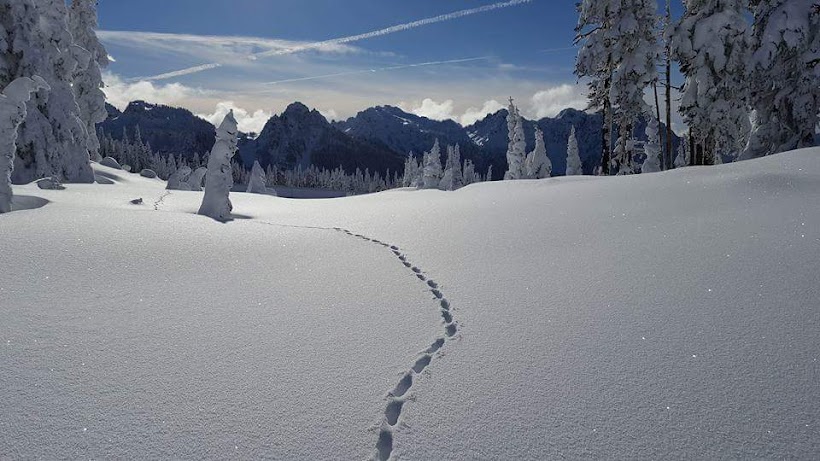The lake is deep.
It's clear blue waters run deep and the reflection contrasts remarkably against the natural blue skies.
As a photo-journalist, I got to go up to Crater Lake National Park on assignment. My job was to find out the tourist levels in a summer without smoke and extreme heat. But it was also to find out how the mountain pine beetles are decimating the forests up there.
The winter snows held on this year keeping the park closed well into June, so the tourism had a slow start. But the summer held mild temperatures and clear skies. No fires reported so far (until a few days ago), so tourism was on the rise. I could see it all around me. Happy faces. Families and visitors from across the world coming to see the blue. It has been a beautiful summer so far, and things are looking up.
But climate change has set about a series of events. For one, the summers are warmer and longer. The pine mountain beetle has more time to infest the lodgepole pines, and possibly even reproduce more often creating a larger infestation. The lodgepole pines have had a natural defense against the predator, but the longer summers are taking their toll.
And the white bark pines are now being infested by the pine bark beetle. The pine, which is common around the rim of the lake at much higher elevations has never had to defend itself against the beetle. But with warming temperatures, the beetle is able to move higher in it's pursuit to eat and reproduce.
It is the sign of the times.
 |
| Tourists walk along the clear blue waters of Crater Lake. |
In it's place, the deepest lake in North America. It's called a caldera. Supposedly, the lake does not drain at all but is filled entirely by rain and snow melt. It's more natural and clean than most bodies of water we'll ever come across.
Change happens. And perhaps mother nature will correct this warming climate. Crazy storm systems are already apparent with record floods, violent hurricanes and extensive tornado seasons.
And a lot more fires.
 |
| Author taking a selfie before the lake. |
The lake remains along with bleach white dead stands of white bark pines along a green forest that hasn't succumbed to the infestation. And the blue colors will always bring about the beauty of nature and the illusion that the mountains, the forests and our world around us is perfectly fine.
Which is why we come.



